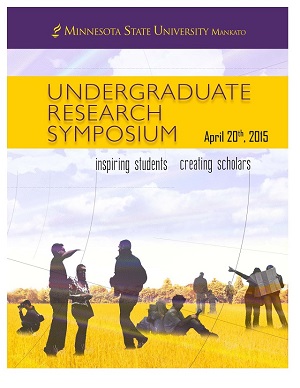The Analysis of Emotionality Linked to Identifiable Names on Facebook Confession Pages
Location
CSU Ballroom
Start Date
20-4-2015 2:00 PM
End Date
20-4-2015 3:30 PM
Student's Major
Psychology
Student's College
Social and Behavioral Sciences
Mentor's Name
Kathy Bertsch
Mentor's Email Address
kathy.bertsch@mnsu.edu
Mentor's Department
Psychology
Mentor's College
Social and Behavioral Sciences
Second Mentor's Name
Rachel Burlet
Second Mentor's Department
Psychology
Second Mentor's College
Social and Behavioral Sciences
Description
Anonymous social media such as Yik Yak, Secret and Facebook confessions pages are speculated to contribute to cyberbullying, yet research to date has not systematically analyzed the specific content of such anonymous social media. Specifically, Facebook confession pages are created by students for a particular school and contain the school name, mascot and or city and state of the school. Students follow the page, and post through a 3rd party survey tool—which allows a Facebook administrator to post their comments anonymously. The purpose of this study is to analyze Facebook confession pages to determine whether posts with identifiable names differ in emotionality to posts without identifiable names. An archival Facebook confessions data set from high schools in the United States was used (Bertsch, Burlet & Conrad, 2014). Posts (n=1560) from a two-month period were coded for identifiable names. The Linguistic Inquiry and Word Count (LIWC) software was used to identify the emotionality (e.g. positive and negative emotions, anger, anxiety, sadness) of each post entered. Statistical Package for the Social Sciences (SPSS) was then used to calculate the difference in positive and negative emotionality for posts with names compared to posts without names. Results show the degree to which anonymous posts include positive versus negative emotionality and whether posts with identifiable names were more negative than posts without identifiable names. Posts with identifiable names and negative emotionality are theorized to potentially contribute to cyberbullying.
The Analysis of Emotionality Linked to Identifiable Names on Facebook Confession Pages
CSU Ballroom
Anonymous social media such as Yik Yak, Secret and Facebook confessions pages are speculated to contribute to cyberbullying, yet research to date has not systematically analyzed the specific content of such anonymous social media. Specifically, Facebook confession pages are created by students for a particular school and contain the school name, mascot and or city and state of the school. Students follow the page, and post through a 3rd party survey tool—which allows a Facebook administrator to post their comments anonymously. The purpose of this study is to analyze Facebook confession pages to determine whether posts with identifiable names differ in emotionality to posts without identifiable names. An archival Facebook confessions data set from high schools in the United States was used (Bertsch, Burlet & Conrad, 2014). Posts (n=1560) from a two-month period were coded for identifiable names. The Linguistic Inquiry and Word Count (LIWC) software was used to identify the emotionality (e.g. positive and negative emotions, anger, anxiety, sadness) of each post entered. Statistical Package for the Social Sciences (SPSS) was then used to calculate the difference in positive and negative emotionality for posts with names compared to posts without names. Results show the degree to which anonymous posts include positive versus negative emotionality and whether posts with identifiable names were more negative than posts without identifiable names. Posts with identifiable names and negative emotionality are theorized to potentially contribute to cyberbullying.
Recommended Citation
Schabert, Trevor. "The Analysis of Emotionality Linked to Identifiable Names on Facebook Confession Pages." Undergraduate Research Symposium, Mankato, MN, April 20, 2015.
https://cornerstone.lib.mnsu.edu/urs/2015/poster_session_B/42




